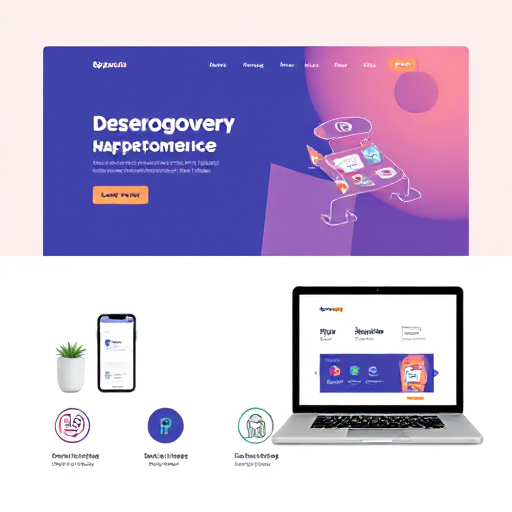Blogging And Affiliate Marketing: A Guide To Turning Your Blog Into A Revenue Stream
Blogging has evolved from a personal storytelling platform into a powerful tool for businesses and entrepreneurs. When combined with affiliate marketing, blogging can become an income-generating venture. Here’s an in-depth look at how you can leverage affiliate marketing on your blog, build credibility, and maximize your earning potential.
Make Money in 7 Days as an Entertainment Blogger and Affiliate Marketer – The Easy Way
Understanding Blogging and Affiliate Marketing
Affiliate marketing involves promoting products or services from other companies. When visitors to your blog click on affiliate links and make purchases, you earn a commission from those sales. Unlike traditional advertising, affiliate marketing allows you to earn money through content-driven recommendations, making it a natural fit for blogs that want to engage readers without overwhelming them with ads.
Choosing Your Niche and Understanding Your Audience
- Select a Relevant Niche: To be effective, affiliate marketing requires a focused niche. Whether you blog about travel, tech, lifestyle, or fitness, a niche helps you tailor content and find affiliate products that align with your topic.
- Understand Your Audience’s Needs: The most successful affiliate marketers know what their readers are looking for and recommend products that address those needs. Take time to research your audience’s preferences and pain points to make relevant product recommendations.
Make Money in 7 Days as an Entertainment Blogger and Affiliate Marketer – The Easy Way
Setting Up an Affiliate Program
Many companies offer affiliate programs through popular networks, such as:
- Amazon Associates: Ideal for diverse product types and suitable for bloggers in almost any niche.
- ShareASale and CJ Affiliate: These networks host multiple brands and offer higher commission rates for bloggers with an engaged audience.
- Individual Company Affiliate Programs: Many brands run their own affiliate programs, especially in tech, fitness, and lifestyle niches.
When choosing affiliate programs, consider factors like commission rates, payment terms, and the relevance of the products to your blog.
Creating Valuable Content Around Affiliate Links
Instead of pushing products on your readers, focus on creating valuable, informative content that naturally incorporates affiliate links. Here are a few content ideas that work well with affiliate links:
- Product Reviews and Comparisons: Share honest opinions about products you’ve tried or compare two or more options. Readers appreciate unbiased insights, making them more likely to click on your links.
- Tutorials and How-To Guides: Walk readers through processes where affiliate products can help, such as “How to Set Up a Home Gym” for a fitness blog or “Setting Up Your Home Office” for a lifestyle blog.
- Listicles: “Top 10 Gadgets for Travelers” or “5 Must-Have Kitchen Tools” provide opportunities to add multiple affiliate links in one post.
Building Trust with Your Audience
Trust is essential in affiliate marketing. Your readers want to feel confident that you’re recommending products that genuinely offer value. A few ways to build trust include:
- Disclosing Affiliate Links: Let your audience know when a link is an affiliate link. This transparency boosts credibility.
- Providing Honest Reviews: Avoid overly promotional language or misleading claims. Your readers will respect and return to a blog that offers real insights.
- Balancing Content with Affiliate Links: Not every blog post needs to include an affiliate link. Offering purely informative content also shows readers you’re not just there to sell.
Make Money in 7 Days as an Entertainment Blogger and Affiliate Marketer – The Easy Way
Optimizing Affiliate Marketing Efforts with SEO
To maximize the reach of your affiliate content, you’ll want to optimize your blog posts for search engines:
- Keyword Research: Use tools like Google Keyword Planner or Ubersuggest to identify keywords that align with your niche and target products.
- Quality Backlinks: Aim to get links from reputable websites in your industry to improve the credibility and ranking of your content.
- Content Structure: Break up your posts with headings, bullet points, and visuals to make them easy to read. SEO-optimized, well-structured content is more likely to perform better in search engine rankings.
Measuring and Optimizing Performance
Tracking your affiliate marketing results is crucial for continuous improvement. Use tools like Google Analytics to track how your audience engages with your affiliate content. Pay attention to metrics like:
- Click-Through Rate (CTR): This measures how many readers clicked on your affiliate links. A high CTR means your link placement is effective.
- Conversion Rate: A percentage of users who made purchases after clicking your affiliate link.
- Top Performing Pages: Review your top pages with affiliate links and identify why these pages outperform others.
Make adjustments based on what’s working. If you notice certain types of posts drive more clicks and conversions, focus on creating similar content.
Make Money in 7 Days as an Entertainment Blogger and Affiliate Marketer – The Easy Way
Best Practices for Long-Term Success in Affiliate Marketing
- Diversify Your Affiliate Partners: Relying on one affiliate program can be risky if the company changes terms or decreases commissions. Look into multiple affiliate programs relevant to your blog.
- Update Links Regularly: As companies adjust their products and services, check that your affiliate links are still active and accurate.
- Stay Informed on Affiliate Marketing Trends: Affiliate marketing is constantly evolving. Follow industry news, attend webinars, or join affiliate marketing groups to stay up-to-date.
Make Money in 7 Days as an Entertainment Blogger and Affiliate Marketer – The Easy Way
Blogging and affiliate marketing offer a powerful combination for creating an engaging online presence and earning income. By understanding your audience, creating quality content, and continuously optimizing, you can build a trustworthy blog that grows alongside your affiliate marketing success. With patience and dedication, blogging with affiliate links can become a sustainable source of revenue.







